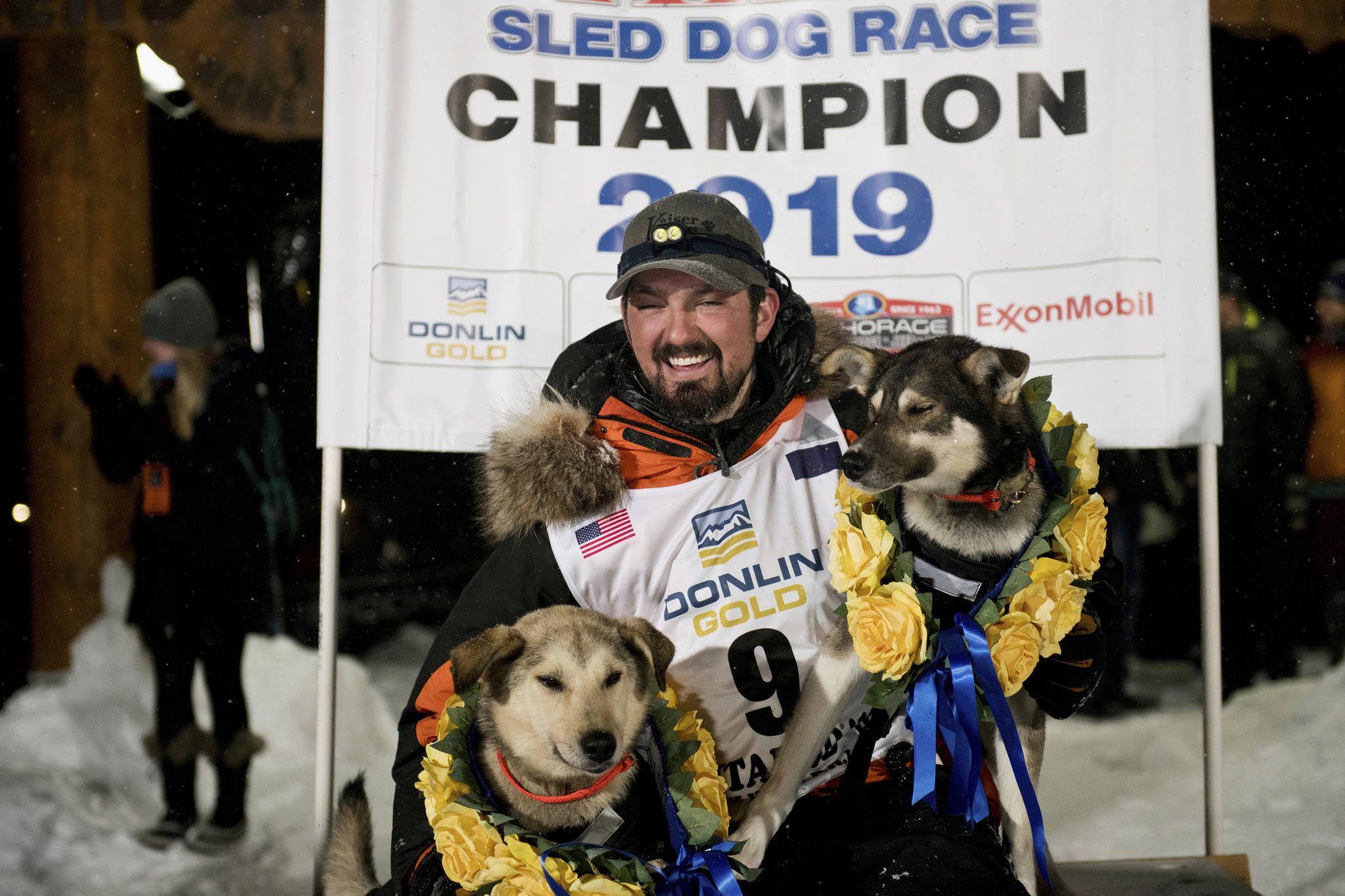ANCHORAGE — A young Pete Kaiser had the drive to learn about racing sled dogs and the family and community to support his passion. Years later, he won his first Iditarod Trail Sled Dog Race.
Growing up, Kaiser had plenty of sled dogs to choose from at his parents’ kennel in Bethel, a rural community in southwest Alaska. He got his first taste of success as a senior in high school when he won a 65-mile race. From there, the competitions and prizes kept getting bigger.
On Wednesday, the 31-year-old captured the crowning glory in the sport, the Iditarod, a grueling test against the wildest terrain Alaska has to offer. Kaiser crossed the finish line in the Gold Rush town of Nome after beating back a challenge from the defending champion, Joar Ulsom of Norway.
[Multiple Crimson Bears make Region V all-academic and all-conference]
Ulsom finished the race just 12 minutes after Kaiser, who took 9 days, 12 hours, 39 minutes and 6 seconds to complete the 1,000-mile journey over two mountain ranges, along the frozen Yukon River and across the treacherous, wind-swept Bering Sea coast.
It’s Kaiser’s first Iditarod victory in his 10th try. He said he wasn’t sure what made everything come together for him this year.
“Just years of knowledge gained and trying to put it all together to have a better race, better dog team this year — every little detail coming into play,” he said in a post-victory interview televised from the finish line.
Kaiser became the fifth Alaska Native and first Yupik musher to win the world’s most famous sled dog race.
Veteran Iditarod musher Mike Williams Sr. has been friends with the Kaiser family and watched Pete’s career progress. His victory lifts up not only the Yupik people but all southwest Alaska, Williams said.
“It’s going to make 35,000 people proud,” Williams said. “I think he’s going to be a great representative for us.”
A large group of residents from Bethel, Kaiser’s hometown, flew in to see his victory. Alaska Native dancers and drummers performed near the finish line as they waited for Kaiser to arrive, even though it was past 3 a.m.
Kaiser called the support “extremely humbling, and it motivates me every day to perform to my best, and I just want to thank them for coming out here tonight.”
When he was young, Kaiser went to races like the Kuskokwim 300, an annual mid-distance race in Bethel, to learn everything he could from the mushers.
That includes Ed Iten, a veteran musher whose best Iditarod finish was second place in 2005.
“He was a young boy then and came over and helped me feed the dogs,” Iten said. “Then he went from helping out when I was in Bethel feeding my dogs to eventually whipping my butt in the Kusko 300, so he’s a quick study.”
Kaiser, who counts Iten as his mentor, went on to win four Kuskokwim 300 races.
“It just couldn’t be better,” Iten said of Kaiser’s Iditarod victory. “We’ve been waiting for this. There’s been no doubt in my mind that he was going to get it sooner or later.”
Dogs are in the Kaiser family’s blood. Pete’s father, Ron, raced dogs for a few years and then kept an active kennel. His mother, Janet, managed the Kuskokwim 300.
Kaiser, who is married with two children, mushes in the winter and gets seasonal summer jobs on top of managing the kennel.
Sled dog races don’t have lucrative jackpots — Kaiser picked up about $50,000 and a new truck for winning the world’s premier competition. The prize money is down about $20,000 from what the 2017 winner received.
This year’s race was marked by the stunning collapse of Frenchman Nicolas Petit, who was seemingly headed for victory as late as Monday. He had a five-hour lead until his dog team stopped running.
Petit said one dog was picking on another during a rest break, and he yelled at the dog to knock it off. At that point, the entire team refused to run. He had to withdraw.
Fifty-two mushers began this year’s race. Petit was among 10 who withdrew.
The 2019 race came during a bruising two-year stretch for the Iditarod that included a dog doping scandal and the loss of national sponsors amid protests by animal rights activists.
People for the Ethical Treatment of Animals is the biggest critic.
“Hundreds of dogs (including six from Pete Kaiser’s team) were so sick, exhausted, or injured that they were pulled from the race, forcing the ones remaining to work even harder, struggling on in what is a grueling test — not of human endurance but of a dog’s ability to survive extreme cruelty,” PETA Executive Vice President Tracy Reiman said in a statement after Kaiser’s victory.
• This is an Associated Press report by Mark Theissen.

